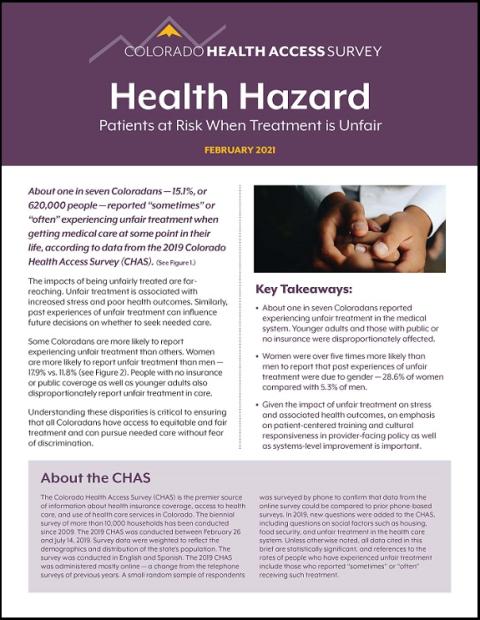Policy Challenges and Opportunities
Addressing unfair treatment in the health care system will require engagement at multiple levels of policy and community. From upstream solutions such as educational reform to incentive programs that center on cultural responsiveness, there are many opportunities to begin to chip away at discrimination within society’s health care structures.
Reenvision Medical Training
While experts often recommend training as the main proposed solution for bias and discrimination in health care, it is important to consider the full career progression of physicians. Instead of waiting until an incident brings about a need for bias training, emphasizing cultural responsiveness in the medical school application process and throughout the training of medical students would facilitate earlier adoption of critical skills. Studies have found significant and positive changes in attitudes toward lesbian, gay, bisexual, transgender, queer, intersex, and asexual (LGBTQIA+) patients following intentional training to promote more positive medical student or provider attitudes toward patients, particularly when training materials incorporate patients’ input.
Create Space for Honest Feedback
Too often the only opportunity for those who have experienced unfair treatment to share that experience is retroactive reflection through surveys like the CHAS. By creating additional secure forums for honest feedback, patients will be able to more frequently flag areas needing improvement and identify better access channels for resolution. Real-time data allow for real time changes. Implementing ombudsman programs in health care settings that focus specifically on unfair treatment could provide a needed safe forum for this kind of feedback. Studies show that ombudsman services are particularly necessary when individuals have unique needs, a natural power differential exists, and/or the system of care is complex. Given the relationships patients have with providers, the complexity of the health care system, and the social weight of certain identities, the impact of such a program could be significant.
Redefine Value in Value-Based Care
As the health care landscape shifts increasingly to value-based payment systems — a form of reimbursement that ties payments for care to the quality of care — redefining the meaning of value can emphasize and incentivize cultural responsiveness. The recent focus on innovation and value-based care has centered on delivery system reform which, though important, does not directly pinpoint the root cause of unfair treatment and how it presents itself and affects patients. Tying value and quality to indicators of cultural responsiveness would reward health care professionals for taking intentional steps toward providing equitable care for all patients. The Colorado Department of Health Care Policy and Financing (HCPF) is currently investigating new ways to emphasize cultural responsiveness and health equity. HCPF hired a diversity, equity, and inclusion manager who will lead the charge in implementing cultural competency trainings for providers participating in value-based payment primary care programs. The department is also exploring new Alternative Payment Model measures that address racial disparities, such as ensuring better race/ethnicity data collection and measures aimed at mitigating potential language barriers.
Who’s Missing From This Analysis?
The CHAS asks respondents for demographic information, including race, ethnicity, and gender identity. This brief does not include an analysis of unfair treatment among LGBTQIA+ Coloradans because of this sample size issue. But there is no question that communities of color and members of the LGBTQIA+ community have long had to navigate systems that are inextricably rooted in racist, heteronormative, and sexist structures.
Patients who seek care and belong to one or more marginalized communities regularly confront physicians or others in the health care system who may or may not be explicitly biased, but who operate in an inherently discriminatory system. Although the present data cannot contribute to quantitative analysis of these specific categories, it is indisputable that throughout the history of this country nondominant racial, ethnic, disability, and sexual identities have experienced unfair and discriminatory treatment when seeking medical care. Readers are urged not to review this brief separate from this history and context.
Conclusion
The CHAS data on unfair treatment in the health care system are sobering. With nearly one in seven Coloradans reporting experiences of unfair treatment at some point in their life, addressing conscious and unconscious bias in health care is critical.
All Coloradans should be able to access needed health care without the fear of discrimination or bias. And the fact that 94.1% of those who reported unfair treatment experienced some level of stress from the encounter shows that these experiences have direct negative impacts on the health of Coloradans.
The road toward a more equitable health care landscape is by no means easy or clear, but raising the issue is a first and necessary step. By dedicating resources to and encouraging engagement with this issue, Colorado can continue to strive to improve the health of all communities.






